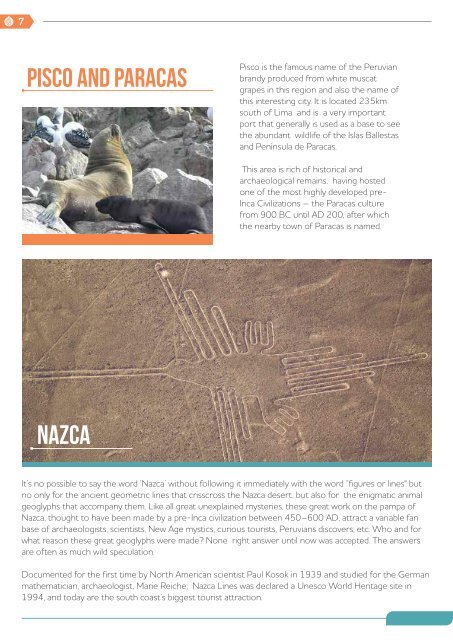Giardino Tours Brouchure 2018
We are a Tour Operator since 1995 and happy to keep sharing the beauty and culture of our lovely country. Our catalog "Perú Catalog - Giardino Programs 2017" offers to our clients a variety of tours and dynamic packages to all Peru's destination. You can create your own trip, individual, according to your need, duration and interests. For any support, special requirements and questions; we are here to help you discover Perú and its wonders. Please contact us at:web@giardinotours.com Giardino Team.
We are a Tour Operator since 1995 and happy to keep sharing the beauty and culture of our lovely country. Our catalog "Perú Catalog - Giardino Programs 2017" offers to our clients a variety of tours and dynamic packages to all Peru's destination. You can create your own trip, individual, according to your need, duration and interests.
For any support, special requirements and questions; we are here to help you discover Perú and its wonders.
Please contact us at:web@giardinotours.com
Giardino Team.
Create successful ePaper yourself
Turn your PDF publications into a flip-book with our unique Google optimized e-Paper software.
7<br />
pisco and paracas<br />
Pisco is the famous name of the Peruvian<br />
brandy produced from white muscat<br />
grapes in this region and also the name of<br />
this interesting city. It is located 235km<br />
south of Lima and is a very important<br />
port that generally is used as a base to see<br />
the abundant wildlife of the Islas Ballestas<br />
and Península de Paracas.<br />
This area is rich of historical and<br />
archaeological remains, having hosted<br />
one of the most highly developed pre-<br />
Inca Civilizations – the Paracas culture<br />
from 900 BC until AD 200, after which<br />
the nearby town of Paracas is named.<br />
nazca<br />
It’s no possible to say the word ‘Nazca’ without following it immediately with the word “figures or lines" but<br />
no only for the ancient geometric lines that crisscross the Nazca desert, but also for the enigmatic animal<br />
geoglyphs that accompany them. Like all great unexplained mysteries, these great work on the pampa of<br />
Nazca, thought to have been made by a pre-Inca civilization between 450–600 AD, attract a variable fan<br />
base of archaeologists, scientists, New Age mystics, curious tourists, Peruvians discovers; etc. Who and for<br />
what reason these great geoglyphs were made? None right answer until now was accepted. The answers<br />
are often as much wild speculation.<br />
Documented for the first time by North American scientist Paul Kosok in 1939 and studied for the German<br />
mathematician, archaeologist, Marie Reiche; Nazca Lines was declared a Unesco World Heritage site in<br />
1994, and today are the south coast’s biggest tourist attraction.


